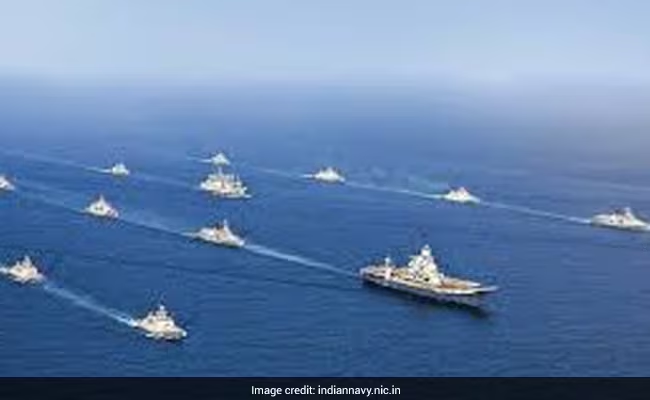
With India considering an invitation to Australia to join the next Malabar naval exercise, a top US diplomat has said that Canberra's participation in the drill along with the other three Quad members will be hugely beneficial to reinforcing behaviours that are going to be necessary for them to defend their mutual interests.
Deputy Secretary of State Steven Biegun made the comments in front of the members of the Senate Foreign Relations during a hearing on US policy regarding China.
India is considering inviting Australia to the next edition of the annual naval exercise. Sources familiar with the development in India said that New Delhi was favourably considering Australia's interest to be part of the Malabar exercise and a formal decision is likely to be taken in the next couple of weeks.
The indication of India's willingness to include Australia in the Malabar exercise comes in the midst of a bitter standoff with China in eastern Ladakh.
"India just recently invited Australia to participate in the Malabar exercises, which is now going to allow all four members of the quad to participate in a military exercise together that will be hugely beneficial to reinforcing the behaviours that are going to be necessary for us to defend our mutual interests," Mr Biegun said.
Quad or quadrilateral coalition represents four countries - India, Japan, Australia and the US. So far, India, Japan and the US have been taking part in the annual naval exercise that started in 1992 as a bilateral drill between the Indian and the US Navy in the Indian Ocean. Japan became a permanent member of the exercise in 2015.
The Quad was set up with an aim to ensure peace and stability in the Indo-Pacific and check China's increasing efforts to expand military influence in the region.
Mr Biegun said that the US has launched a robust cooperation in the Indo-Pacific quad. The US is collaborating very closely with countries in the Indo-Pacific for regional approach and globally.
"The United States is actively advancing a strategy to pursue our interests. Specifically, in relation to the Indo-Pacific, we're working very closely with our ASEAN partners," he said.
"Our policy successfully stands on four pillars. First is unity at home. Second is close partnership with our friends and allies around the world. Third is effective military deterrence. And fourth is a powerful economic alternative to China," he said.
"We have to work on all four of those together, but the part about international cooperation will be fundamental. I actually think if we get all four of these right, we produce the best outcome with China as well. Because if China sees that that''s how the world is aligned against its efforts, it will have the best incentive to change its behaviour in a peaceful manner, as well," Mr Biegun said.
China claims almost all of the South China Sea as its territory. China has been building military bases on artificial islands in the region also claimed by Brunei, Malaysia, the Philippines, Taiwan and Vietnam.
China has impeded commercial activity like fishing or mineral exploration by countries like Vietnam and the Philippines.
In his testimony, he expressed concern over China's increasing military assertiveness, economic coercion and state-sponsored disinformation campaigns, including among others against India, Australia, Canada, the UK, ASEAN members, the European Union, and several other European countries.
"As part of a comprehensive approach, we are engaged with allies and partners in the G7, the G20, and NATO to highlight the threat that the PRC (People's Republic of China) poses, not just to the United States'' interests but also the interests of our allies and partners," he said.
"We are broadening partnerships across the transatlantic community, the Indo-Pacific, the Middle East, Africa, and the Western Hemisphere. Across the Indo-Pacific region, the United States is deepening relationships with the countries that share our values and interests in a free and open Indo-Pacific," Mr Biegun said.
"Last September, we held a ministerial-level meeting of the United States, Australia, India, and Japan, marking a new milestone in our diplomatic engagement in a new Asian quad in the region."
"We are enhancing our alliances with Australia, Japan, the Republic of Korea, the Philippines, and Thailand, which have helped sustain peace and security for generations, and we are furthering our cooperation with ASEAN, an organisation central to a free and open Indo-Pacific," the senior US diplomat said.
(Except for the headline, this story has not been edited by NDTV staff and is published from a syndicated feed.)
Track Latest News Live on NDTV.com and get news updates from India and around the world

